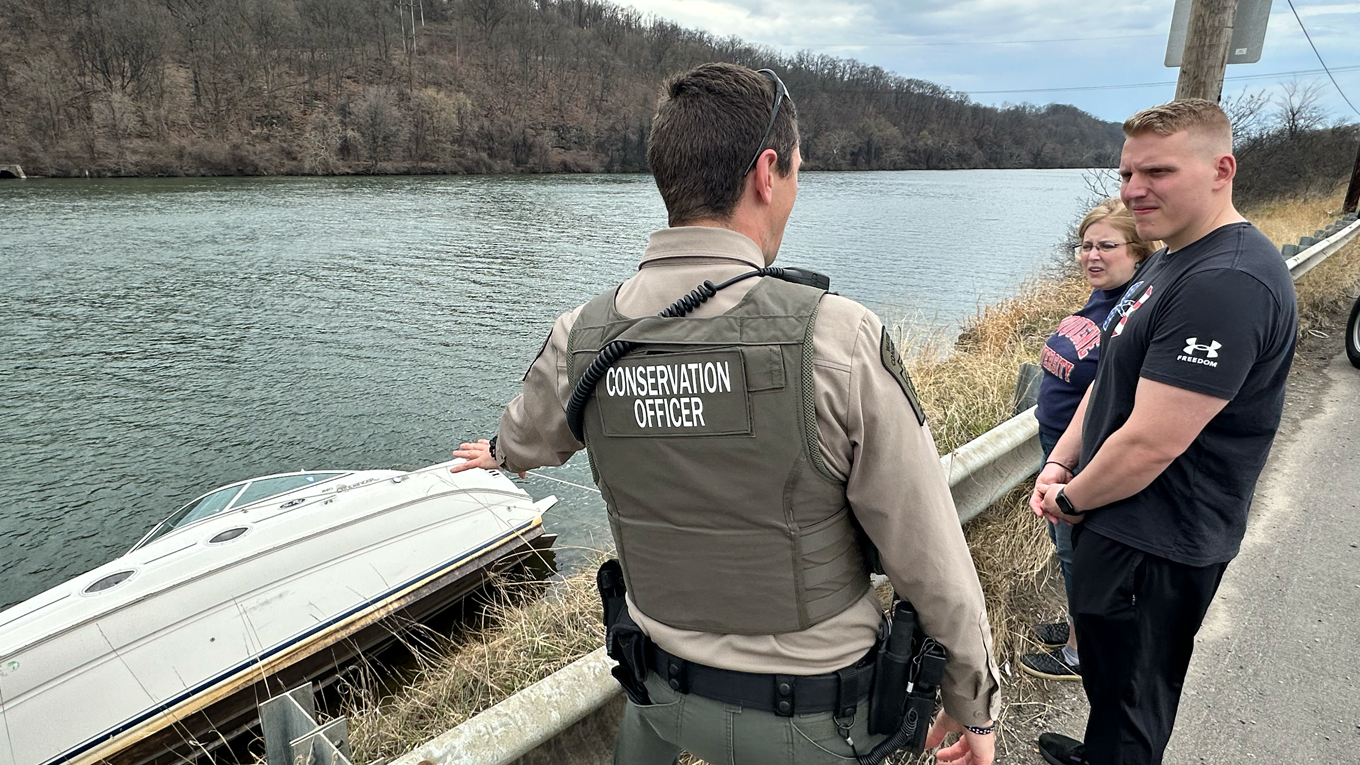Business for the public good, Duquesne MBA students tackle abandoned boats in Pennsylvania’s rivers.
In the heart of Pittsburgh, where three rivers shape the city’s identity, a group of Duquesne University Flex MBA students are tackling a problem that is often hidden beneath the surface, literally. Abandoned and derelict vessels, also known as ADVs, are a growing concern across PA’s waterways. ADV’s leak chemicals, block boat traffic, and pose serious environmental risks. With no formal statewide program to address the issue, the problem continues to expand year after year.
At Duquesne’s Palumbo-Donahue School of Business, a new kind of response is emerging. Students in the MBA capstone consulting course, Management 548, used their business education to deliver real solutions to a real problem. Supported by State Representative Anita Kulik, who also serves as Majority Chair of the House Game and Fisheries Committee, this hands-on project was the result of a first-of-its-kind partnership between Duquesne University and the Pennsylvania Fish and Boat Commission (PFBC).
“I knew this was the kind of real-world challenge our MBA students could help solve,” said David Fortna, Director of Executive Education and Leadership Development at Duquesne. “It sits at the intersection of sustainability, strategy, and public-private collaboration, and it is the kind of work that prepares students to lead with purpose.”
Representative Kulik, a proud two-time graduate of Duquesne University, earning both her bachelor’s degree and Juris Doctorate, has long advocated for responsible environmental stewardship and recreational access to public waterways.
“This project reflects what Duquesne does best,” said Rep. Kulik. “It brings smart, community-minded students into conversations that have real consequences for people, the environment, and public policy. I am so proud to see my alma mater supporting this effort.”
The issue is especially relevant to the Pittsburgh region, where our waterways define the landscape and serve as a hub for industry, tourism, and recreation. Across the state, ADVs are accumulating in coves, channels, and harbors. Estimates suggest that 20 or more new vessels are abandoned each year in Pennsylvania alone.
The PFBC is a self-funded agency without the resources to study or address the ADV crisis. That is where Duquesne’s students stepped in. Led by Professor Michael Corcoran, students in the capstone course worked across five topic areas, each designed to address a core part of the ADV problem. These student teams developed strategic and sustainable solutions that could form the foundation for a long-term statewide response.
Students benchmarked programs in other states, estimated program costs, studied the legal framework, and identified potential partners for vessel removal and disposal. They also learned how to lead in environments with multiple stakeholders and limited resources.
“Our clients have been incredibly helpful in identifying the obstacles facing the PFCB,” said MBA student, Maureen McGaffin. “It’s gratifying to work on a sustainable project that can protect our natural environment.”
Among the student teams, the following actions were researched and suggested to the PFBC:
- Vessel Turn-In Program, providing boat owners with a legal and responsible option to dispose of aging or unwanted vessels.
- Comprehensive cleanup strategy for existing derelict boats, including mapping current locations, coordinating removal logistics, and identifying disposal methods.
- Funding strategies such as grant opportunities, potential sponsorships, and public funding mechanisms.
- Communication and legal reforms, including ways to inform the public and improve regulations that govern vessel ownership and abandonment.
- Sustainable disposal alternatives, such as fiberglass recycling and partnerships with boat manufacturers, to reduce reliance on landfills.
Each team’s work was rooted in the MBA curriculum, applying skills in financial modeling, operations, marketing, public policy, and systems thinking.
While their work was based on research and analysis, the students witnessed the impact of their work firsthand. On a visit to Southside Riverfront Park and Neville Island, students saw up close the vessels they worked to address. Along the shoreline, sunken boats and decaying hulls marred an otherwise beautiful view. Seeing those vessels underscored the urgency and importance of the work.
Students presented their recommendations to the PFBC. Their findings may help guide
future legislation, influence agency programming, and serve as the basis for a pilot
vessel turn-in event
or ADV removal program.
News Information


